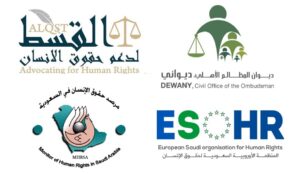
Geneva – London – Berlin – Toronto:
We – as Saudi human rights organizations – have tracked the steps taken by the government of Saudi Arabia to improve its human rights record during the reign of King Abdullah bin Abdul Aziz Al Saud (01/08/2005 – 01/23/2015). We have concluded that such steps were not serious and led to no meaningful gains in human rights. On the contrary, in fact, the human rights situation in Saudi Arabia is currently in serious decline.
On 12/09/2005, the government approved the establishment of the Human Rights Commission). On 24/01/2008, Saudi Arabia joined the Convention on the Rights of Persons with Disabilities and its optional protocol. In February 2009, Saudi provided its first Universal Periodic Review (UPR) and received 70 recommendations by UN member states, of which only 53 were accepted to be reviewed and 45 approved. On 17/04/2010, the UN High Commissioner for Human Rights was allowed to visit. On 18/08/2010, Saudi Arabia joined the optional protocol to the Convention on the Rights of the Child on the sale of children, child prostitution and child pornography. On 10/06/2011, it joined the Optional Protocol to the Convention on the Rights of the Child on the involvement of children in armed conflict. On 27/06/2012, Saudi Arabia signed a Memorandum of Understanding (MOU) for Technical Cooperation with the High Commissioner for Human Rights. In October 2013, it provided the second UPR, and received 226 recommendations by the UN member states, of which only 151 were fully accepted and 36 were partially accepted.On 11/12/2013, Saudi Arabia was awarded a 3-year membership at the United Nations Human Rights Council (2014-2016). On 11/17/2014, the Saudi Council of Ministers approved a local child protection system. They also have issued and updated some local subsystems that are supposed to develop and improve the human rights situation in the country.
Unfortunately, these steps have not been sufficient to creating any tangible improvements in Saudi Arabia’s human rights situation. They have also failed to prevent the serious deterioration in human rights the country has seen since 2011. Today, despite King Abdullah’s promises of reform, Saudi Arabia is classified by leading human rights organisations as among the most undemocratic and repressive states in the world.
The period of King Abdullah’s reign also saw the continued use of arbitrary arrests and detentions, growing restrictions on internet freedom, the passing of legislation which effectively criminalize free expression, the use of the judiciary to punish and penalize human rights defenders and opposition activists (including through the issuing of long prison sentences and even the death penalty), the continued, systematic violation of women’s rights in every aspect of everyday life, and ongoing discrimination against citizens along religious, sectarian and territorial lines. All of this has contributed to a further deterioration in the human rights situation in Saudi Arabia.
We, as Saudi human rights organizations, are a part of the country’s civil society, which was suppressed and prevented from operating freely under the reign of King Abdullah. We emphasize that the new King, in order to safeguard human rights in Saudi Arabia, has a responsibility to do the following:
– immediately release all political detainees and prisoners of conscience, stop all reprisals against human rights defenders for their work (including the use of politically charged investigations and criminal prosecutions), and end all restrictions on free expression.
– end the use of arbitrary arrests and detention, enforced disappearances and extrajudicial, summary or arbitrary executions, all of which violate fair trial standards.
– revise all laws to ensure that they comply with international human rights standards and provide a deterrent against human rights violations.
– ensure judicial independence, and end threats made against lawyers, as well as other restrictions placed on them by the state.
– respond to public demands for political and economic reform, development, and the empowerment of women.
– take effective and urgent measures to address the problems of stateless people and forced migration (deracination) in the southern regions.
– promote the equal rights of religious, sectarian and ethnic minorities and ensure their protection against human rights abuses.
– safeguard the rights of the more than 9 million-strong migrant workforce, and take steps to alleviate the suffering caused by the lack of existing laws to protect them.
– grant citizens the right to civic participation through the adoption of a law on civil society which places no restriction or limits on its roles, and ensures the right to political participation through methods that available to all citizens.
The signatories:
Civil Office of the Ombudsman – Monitor of Human Rights in Saudi (MHRSA) – ALQST Advocating for Human Rights in Saudi Arabia – European-Saudi Organization for Human Rights
